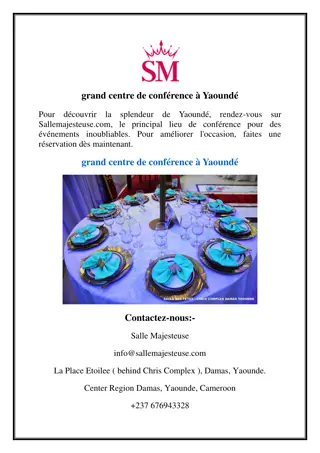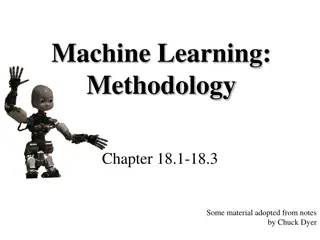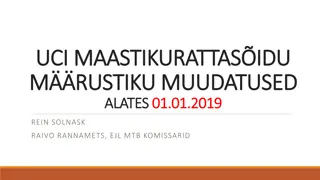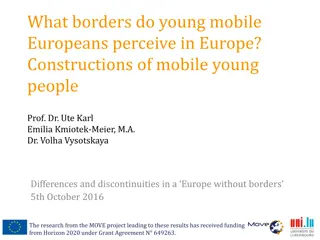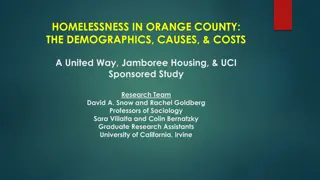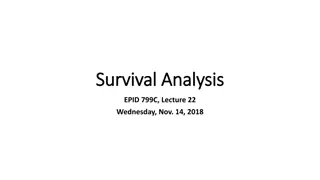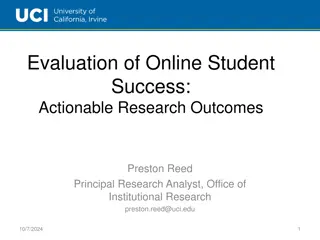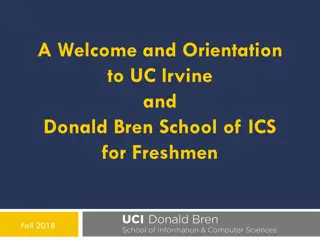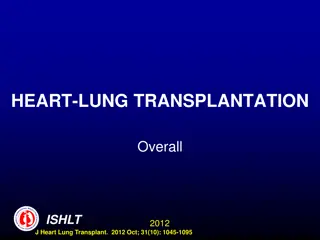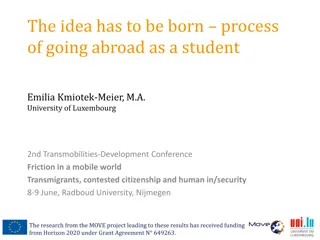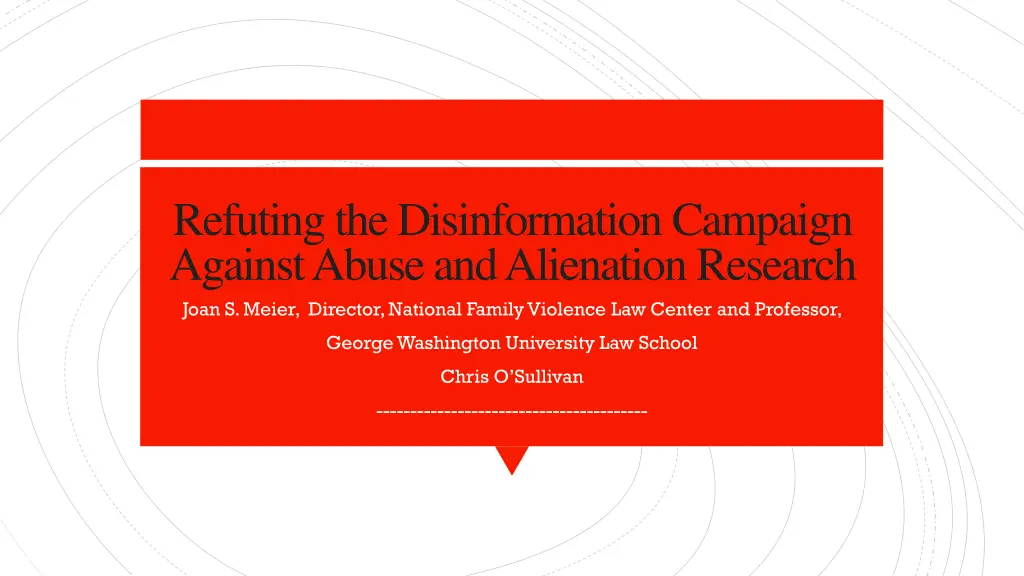
Refuting Disinformation Campaign: Abuse and Alienation Research
Learn about the disinformation campaign against abuse and alienation research led by Joan S. Meier and Chris O. Sullivan. The study reveals concerning rates of custody losses for mothers and rejection of abuse claims. Refuted claims by Harman and Lorandos are debunked, highlighting flaws in their critique.
Download Presentation

Please find below an Image/Link to download the presentation.
The content on the website is provided AS IS for your information and personal use only. It may not be sold, licensed, or shared on other websites without obtaining consent from the author. If you encounter any issues during the download, it is possible that the publisher has removed the file from their server.
You are allowed to download the files provided on this website for personal or commercial use, subject to the condition that they are used lawfully. All files are the property of their respective owners.
The content on the website is provided AS IS for your information and personal use only. It may not be sold, licensed, or shared on other websites without obtaining consent from the author.
E N D
Presentation Transcript
Refuting the Disinformation Campaign Against Abuse and Alienation Research Joan S. Meier, Director, National Family Violence Law Center and Professor, George Washington University Law School Chris O Sullivan ----------------------------------------
Part 1 Scholarly and Forensic Disinformation -Joan Meier
Our 2019 Family Court Outcomes (FCO) study showed close to 50% rates of custody losses for mothers when they alleged abuse and alienation was cross-claimed. It also showed that mothers claims of any type of abuse are rejected more often than not; child sexual abuse claims are rejected more than 85% of the time. Context The FCO study's empirical findings pose a problem for alienation proponents. They responded with baseless attacks, of the sort often used to counter anti-abuse experts and advocates.
Claimed to have identified 30 flaws in our methods Claimed to test our findings and find them unsupported by their data Harman and Lorandos 2020 study Found that fathers fare worse than mothers in custody cases involving abuse and alienation
Claim: The 2019 family court outcomes (FCO) study was deeply flawed and should be ignored (citing H&L). Reality: DISINFORMATION CLAIMS -#1 Harman & Lorandos s list of flaws was largely fabricated and has been thoroughly refuted in our rebuttal articles. Harman and Lorandos have not responded to our rebuttals.
H&Ls CLAIMED FLAWS IN FCO STUDY: 13 of the 30 H&L items are simply false/incorrect not what we did 18 repeat a single complaint (and not a flaw) that they lacked information about our methods DISINFORMATION CLAIMS -# 1, contd 14 are trivial and/or not even flaws, and have no implications for the validity of the findings SUM: 0 ACTUAL FLAWS - Meier et al, Harman & Lorandos s False Critique (2021) https://www.tandfonline.com/doi/full/10.1080/26904586.2 022.2086659
Claim: Harman and Lorandos claim that they (a) conducted a direct and thorough test of our findings and found that (b) it was wrong: fathers fare worse than mothers in family courts. Both of these claims are debunked in Meier et al., The Trouble with Harman & Lorandos s Parental Alienation Family Court Study, https://www.tandfonline.com/doi/full/10.1080/26904586. 2022.2036286 DISINFORMATION CLAIM # 2 Their dataset, questions and analyses differ fundamentally from ours, and are shot through with methodological errors.
Claim: Alienation is real. Abuse advocates wrongly claim it is just a defense to abuse claims and does not exist. Reality: This is a straw man. Abuse advocates do not claim there is no such thing as one parent attempting to alienate a kid from the other. (Batterers are notorious for this.) DISINFORMATION CLAIMS -#3 Rather, the abuse critique says that (1) The label was invented - and is used - to deny credible allegations of a parent/partner s abuse (2) No alienation specialist has expressed an interest in ensuring the label not be misused to deny valid abuse (3) The claim that alienation is scientific and objectively diagnosable masks the reality that the alienation label is entirely subjective and can be applied to virtually any abuse case.
Common forensic claim: Truly abused or estranged (not alienated) children do not turn against their abusive parent; hence, when children are hostile and rejecting it is a sign that they have been fueled by an alienating parent (citing Amy Baker et al) Reality: DISINFORMATION CLAIMS -#4 Baker's research looks at foster children and their ambivalence or wishes to return home. Such children are not comparable to children who live with one safe parent but are being forced to see an unsafe parent. Ample domestic violence research contradicts the bizarre claim that abused children never reject an abusive parent.
A recent study led by Simon LaPierre of Canada, found that research findings reveal that children living with domestic violence express a range of negative feelings, including fear, confusion, deception, and anger - Buckley et al., 2007; Eskonen, 2005; McGee, 2000; Mullender et al., 2002; Overlien, 2014; Swanston et al., 2014. DISINFORMATION CLAIM #4 cont d E.g. Right now, I hate my father for many reasons. Because of him, I was exposed to this violence he used towards my mother. He also used violence towards my brothers and myself (14-year-old girl).
A primary source of the influence and damage of the alienation cottage industry is its capture of scholarly journals. A recent article by Harman published in a high-profile psychology journal (Developmental Psychology) cites numerous studies for its multiple assertions. Many of the studies simply do not show what the assertions claim. Conclusion Yet peer-reviewed journals apparently do not check the authorities and citations authors invoke unlike student-run law reviews, which are less respected.




